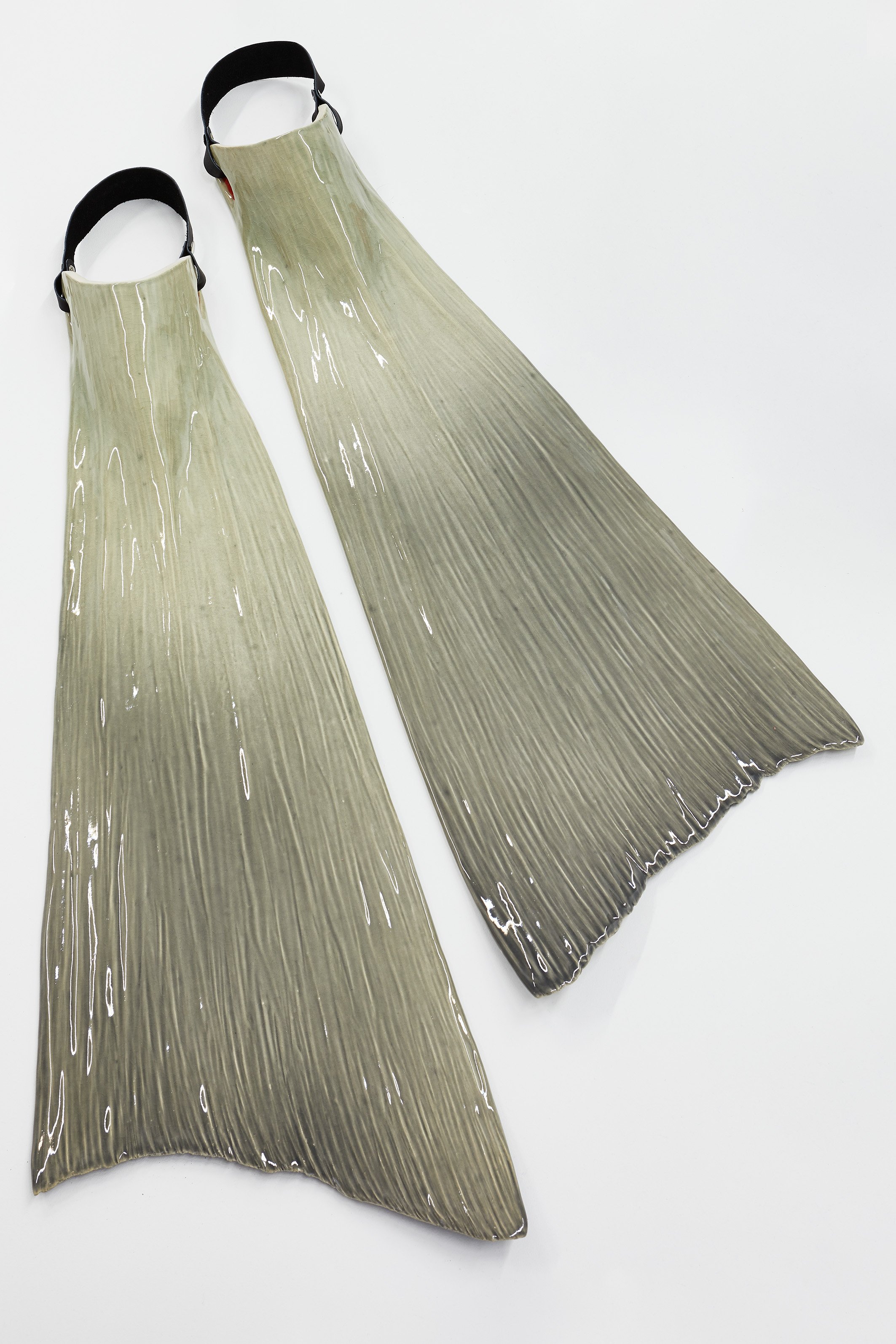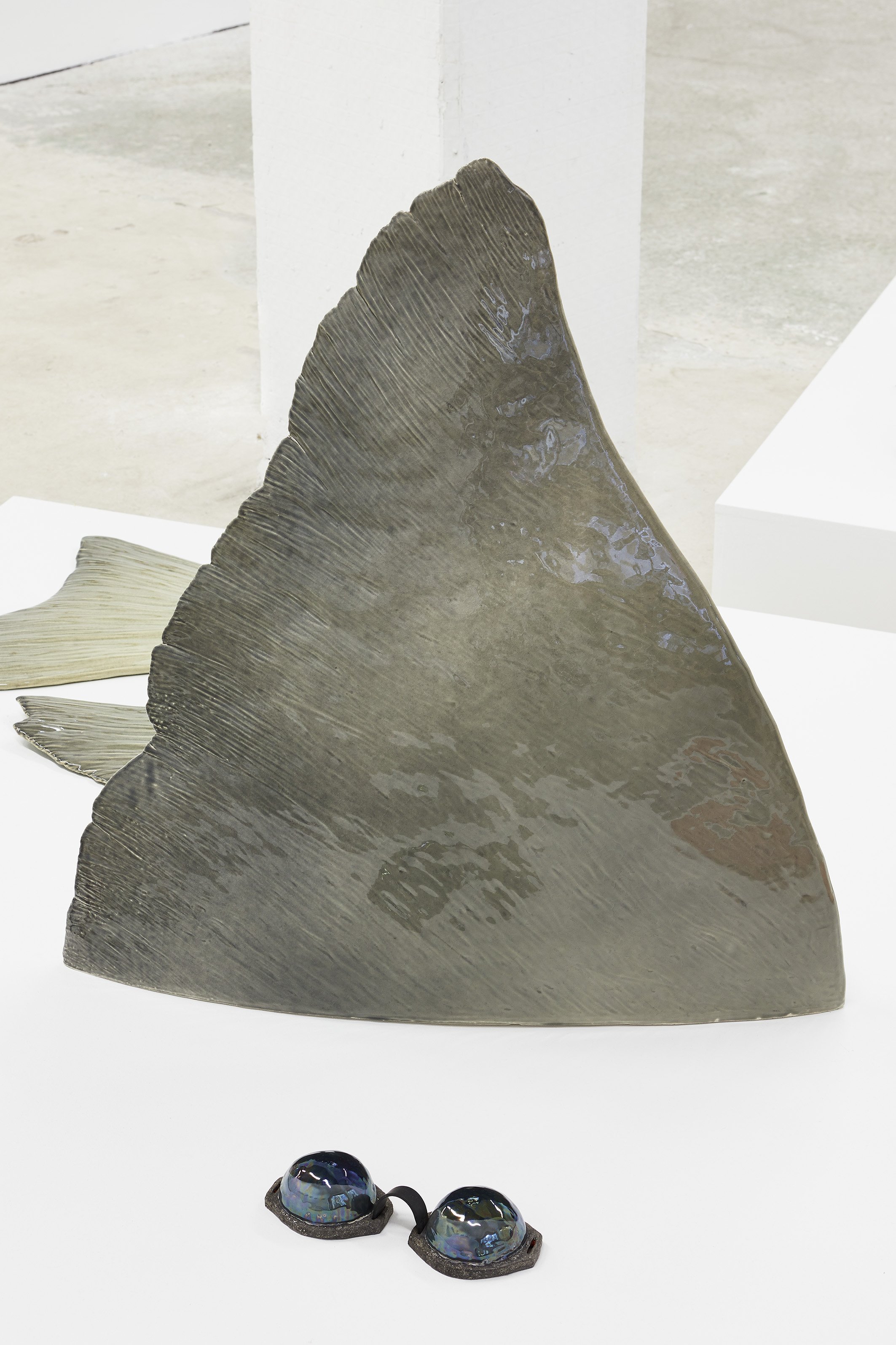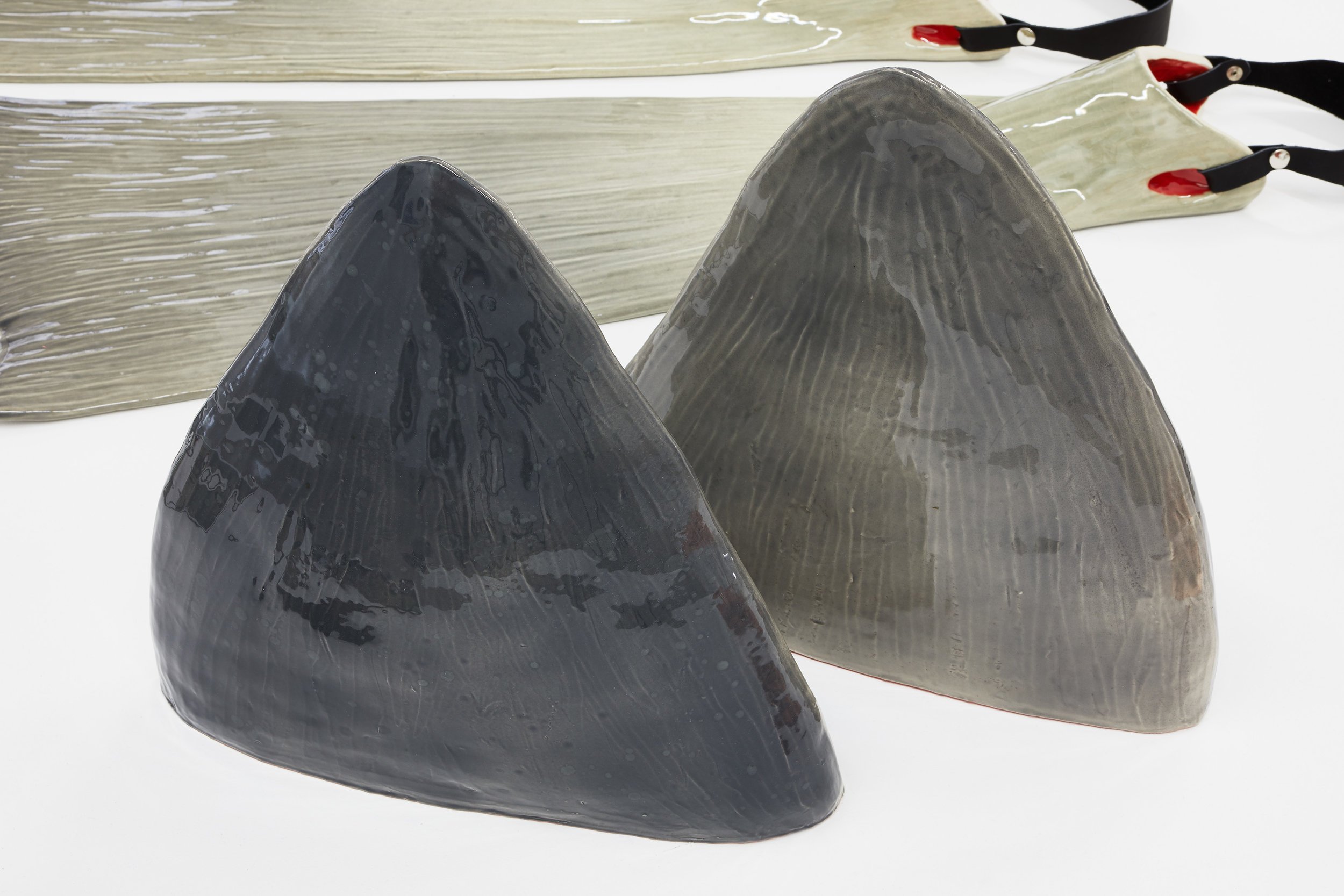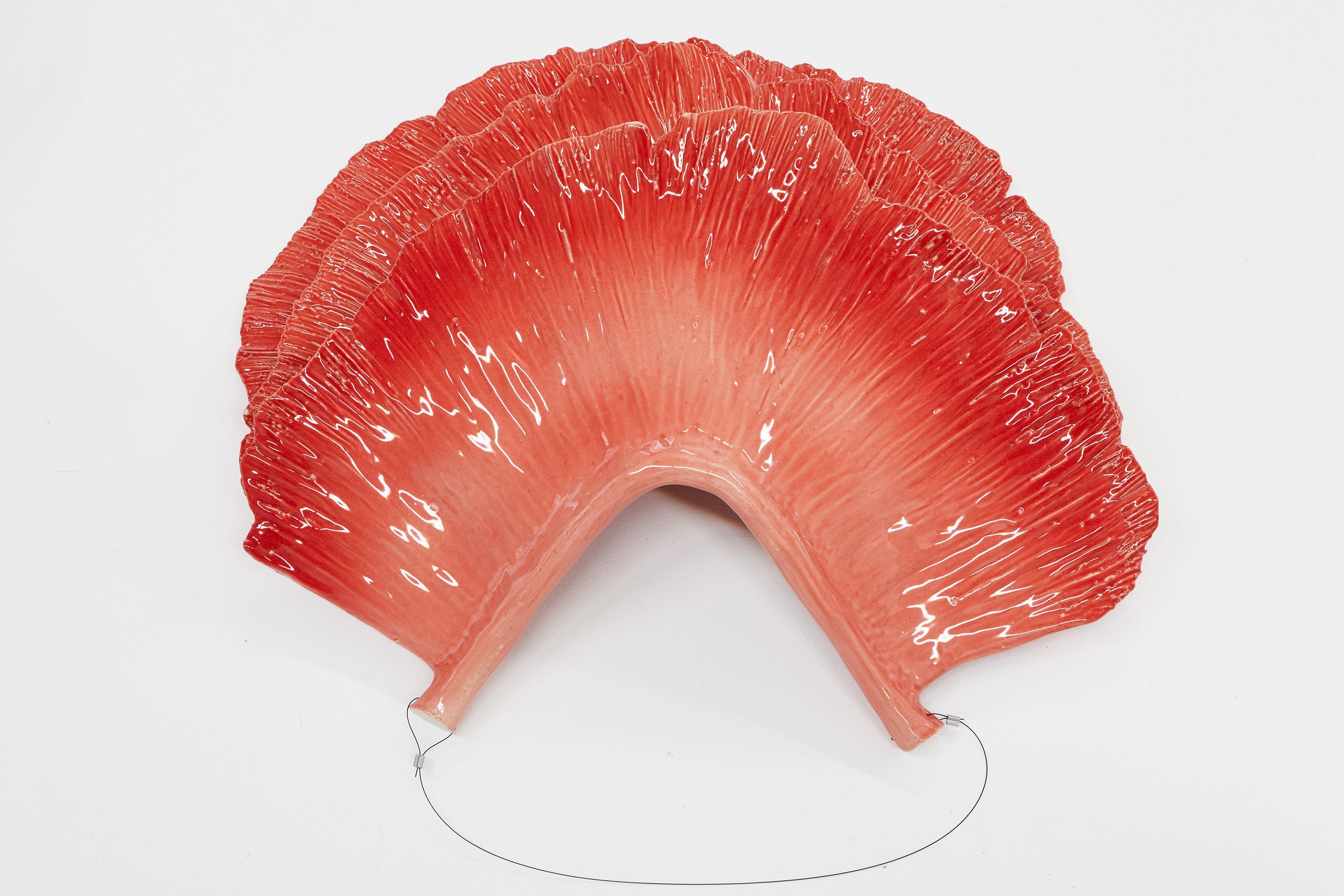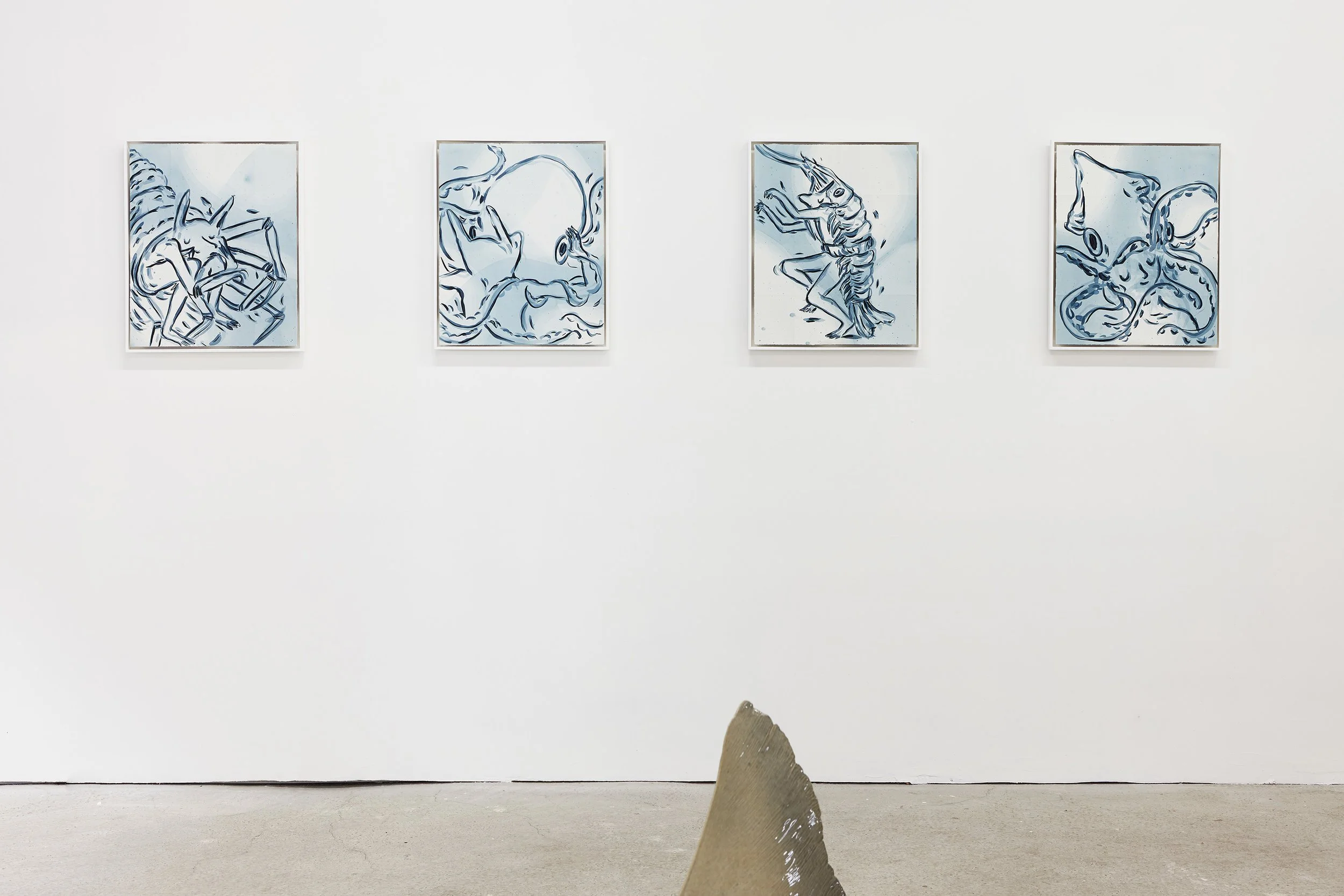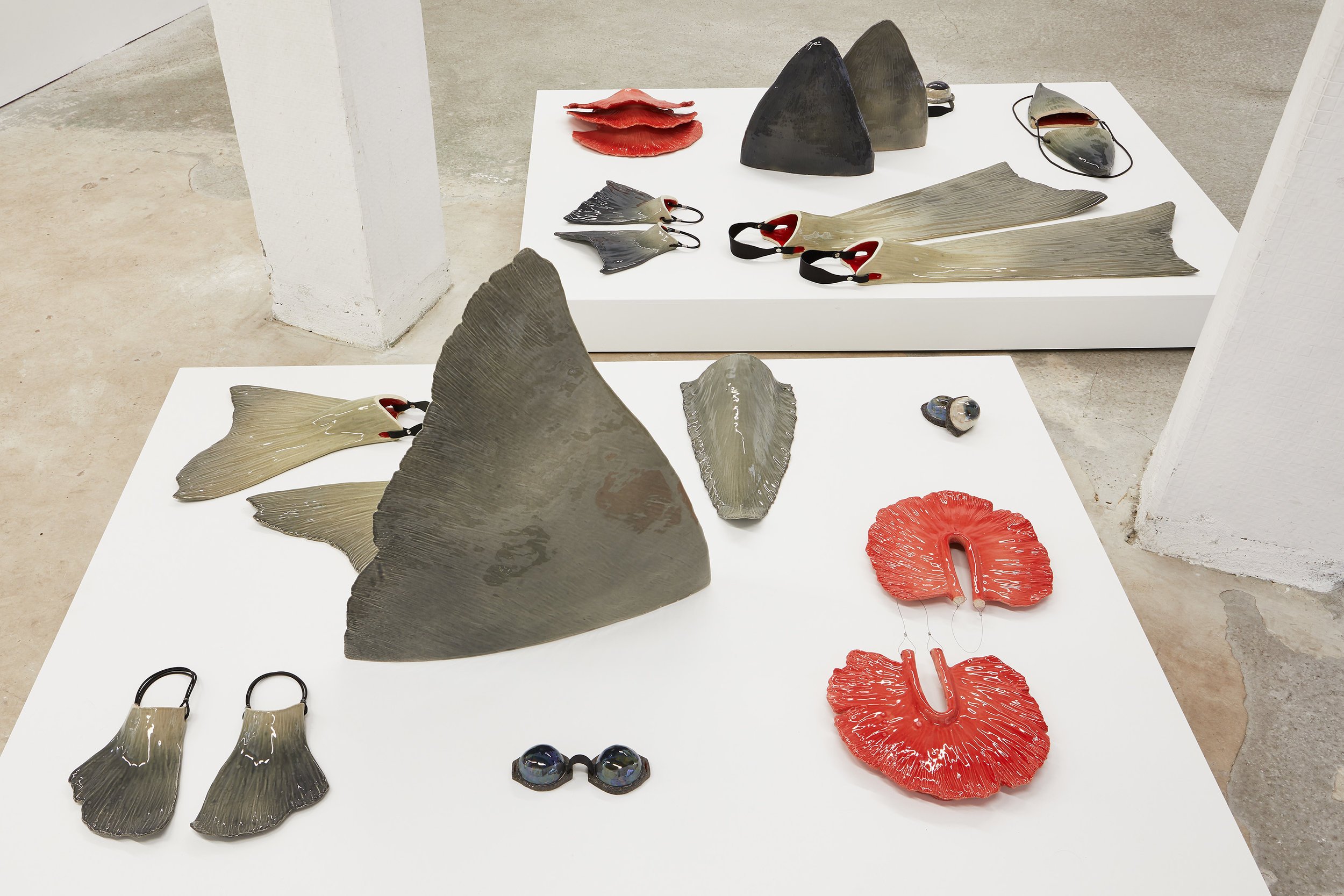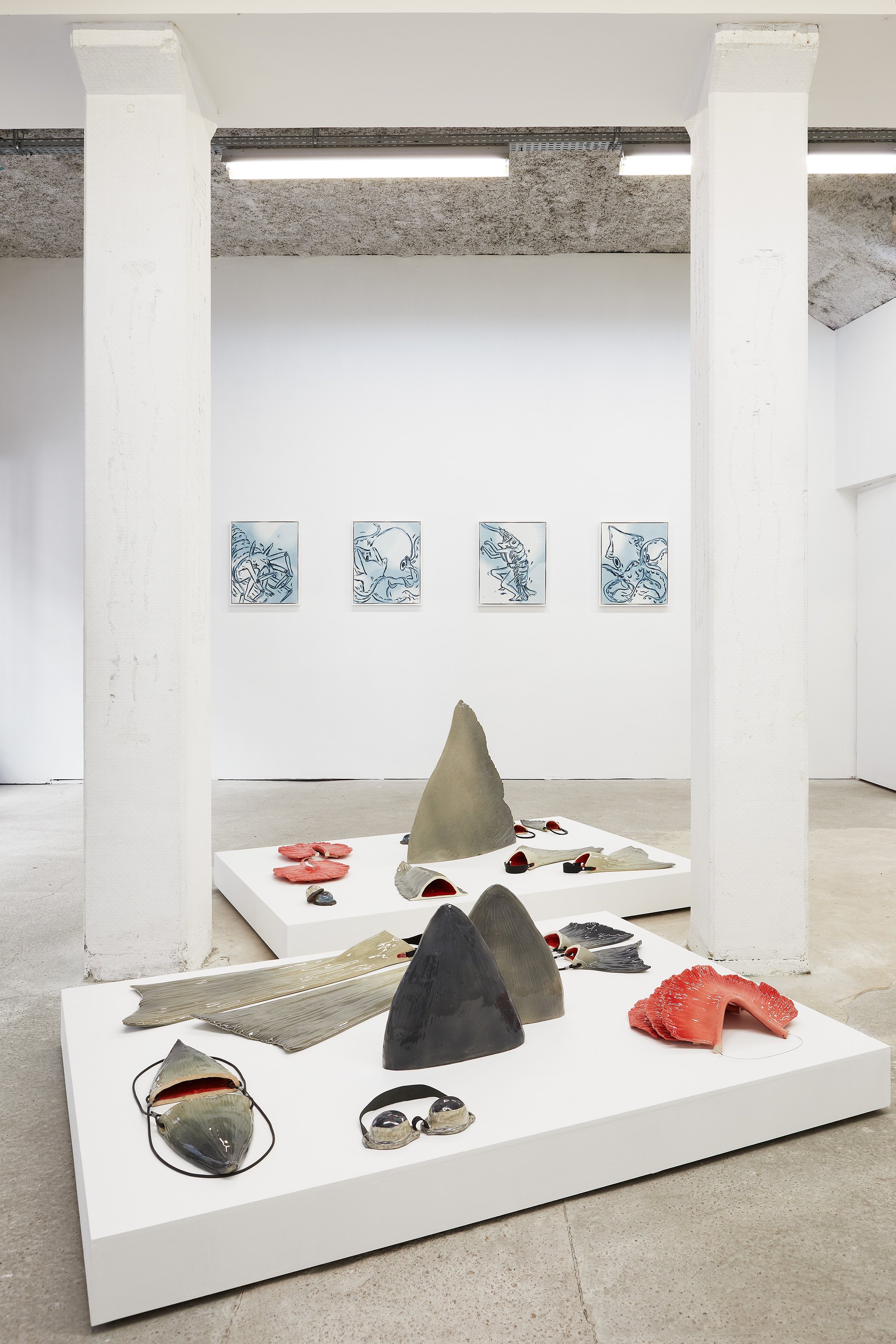Elsa Guillaume & Forlane 6 Studio: Amphibie
29 May–6 July 2019, Marseille
Elsa Guillaume & Forlane 6 Studio, Amphibie, Bastide Projects, Marseille, exhibition view, 2019
Amphibie
Elsa Guillaume & Forlane 6 Studio
curated by Emmanuelle Oddo
May 29 — July 06, 2019
Opening: May 31 from 6-10 pm
at the occasion of
Printemps de l’Art Contemporain
https://pac.marseilleexpos.com/fr/
Much more than an exhibition, Amphibia is a story of encounters, lived adventures and shared dreams. From the high latitudes of the great north of Norway, to the glittering islands of Greece, through the teeming waters of the Pacific, Elsa Guillaume and Hortense Le Calvez bring us a collection of phantasmagorical works. The gallery becomes the territory of "new worlds", out of time: the species hybridize, aquatic fictions are drawn, formulating the hypotheses of an evolution of the Anthropocene. Ceramics, videos, travel diaries and installations make up a poetic ensemble that invites you to think. Their hyphen? Navigation. "The wake is the thread of a necklace of wild pearls." And our crews sail between the trashes of a world to rebuild.
September 2015, the COAL Art & Environment Prize brings together at the Musée de la Chasse in Paris 6 preselected artists to embark aboard Tara, a scientific schooner traveling the oceans, chartered by the agnès b.
Among them, two girls, professional divers passionate about the phantasmagoria of the seabed: Elsa Guillaume and Hortense Le Galvez. If at the end of the evening, Elsa wins the coveted Prize and embarks for the Pacific, the ties that have been tied up tonight continue, as does the desire to work together one day.
It is two years later that Hortense invites Elsa in residence on her studio boat named Forlane 6, based in Greece on the island of Poros. Three weeks spent pacing the land and the waves, drilling in one hand, spinacopita in the other.
From their animated discussions on ecology, eco-anxiety and the Anthropocene, emerges a submarine flying machine evoking the first incongruous inventions that allowed men to discover the seabed. "It is true that we collect both photographic and period engravings that trace the beginnings of these fantastic discoveries. "
It is not surprising to find in this exhibition these hybrid fins fins, or this infernal machine that allows wood to fly underwater: the Anthropocene, his exploits and his aberrations, inspired these two artists a whole imaginary around the travesty thought by Man to tame the unknown, unsuitable environments, the entire environment finally.
Hortense Le Cavez reminds us of the limits of this insatiable curiosity, evoking through its performance "How not to melt you winds" both the "bunkering of the elite" and the fall of the myth of Icarus who will find himself at the bottom of the water after its wings have melted. How far will we push the growing eco-anxiety of our societies?
From his questions about the outcome of the current climate upheavals also results a submerged in-situ installation during a summer on the island of Hydra, a story of drifting seeds staged in his video Desoriented: "The palms that s are grown on islands, previously virgin, are often the result of coconuts that after a long wandering at sea, manage to run aground and grow on a piece of land. With the rise in sea level and the disappearance of many atolls and islets, the latter would be unable to anchor on dry sand. With her partner Forlane 6, she dreams of an alternative where the plant would survive in the depths. "Using the language of weather forecast maps, the arrows represent both the direction and strength of marine currents and / or winds. They indicate in the installation the unstable climatic movements to which the palms have been subjected. "
Elsa, meanwhile, brings back from her travels in Japan ceramic sculptures between reverie and cruelty, like so many sharp fins and fins in the flesh, denouncing, with splendor and lightness, the underwater fishing of underwater species .
Other explorations, such as his crossings on Tara in the Pacific, or on the former Polarfront meteorological boat in the Norwegian Far North, inspired him, unlike the cartographies of wonderful worlds where fish and crustaceans dance with humans. in a utopian harmony that looks like fairy tales.
What will be the next projects to come after these explorations? "A new ambitious collaborative project, positive manifesto for the ocean and against the plastic that poured in: it would be a video made with Alex Voyer and Marianne Aventurier, apneists and underwater photographers based on their sailboat in the Caribbean. . It would be to make an underwater planktonic carnival! A more optimistic video that alarms sending an ecological message impacting. Not surprisingly, the excitement and the poetry that invade us to dive again into the new worlds of Hortense Le Calvez and Elsa Guillaume, both familiar and disturbing, real and fantastic, utopian and threatening.
Text by Emmanuelle Oddo





